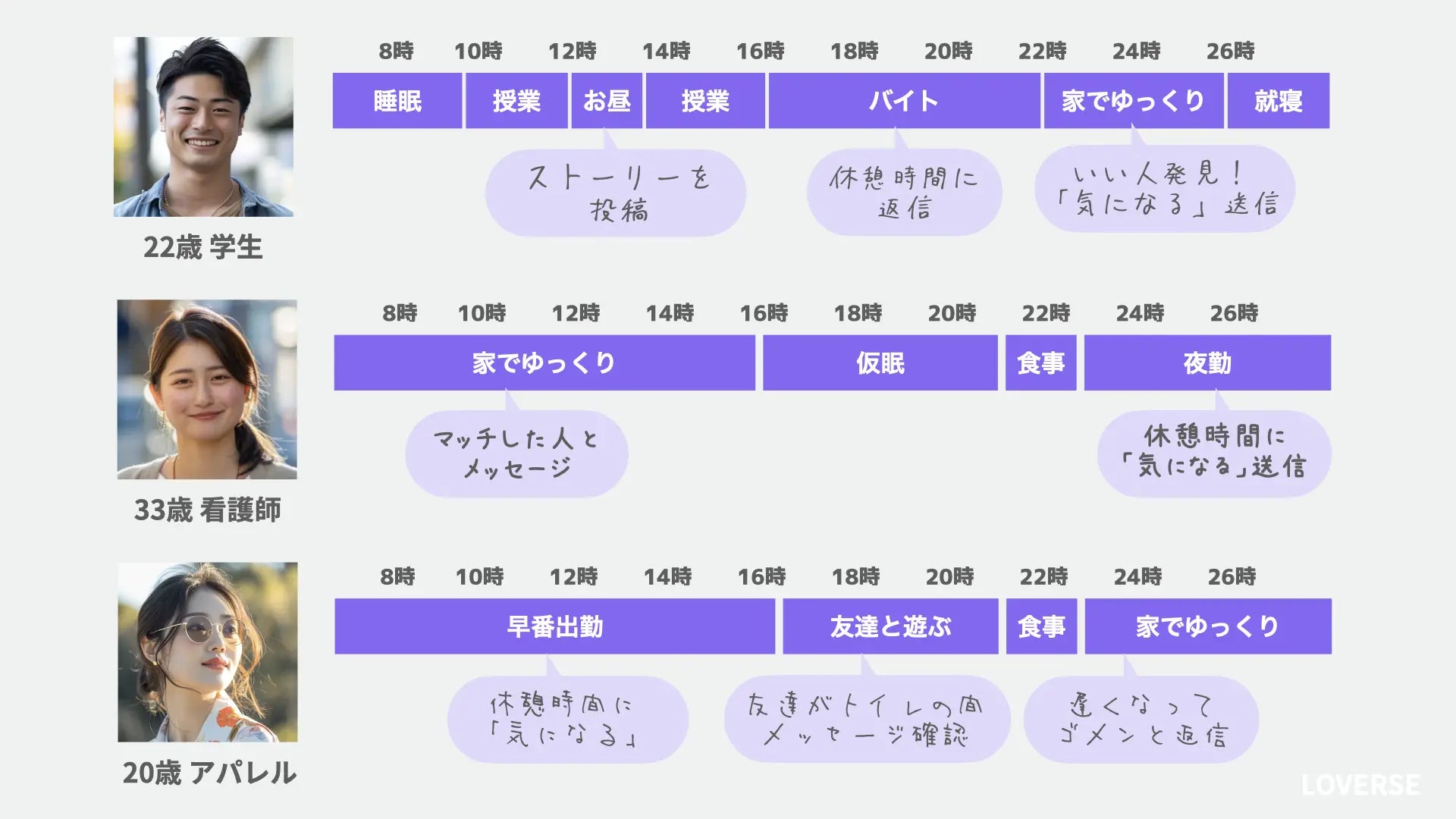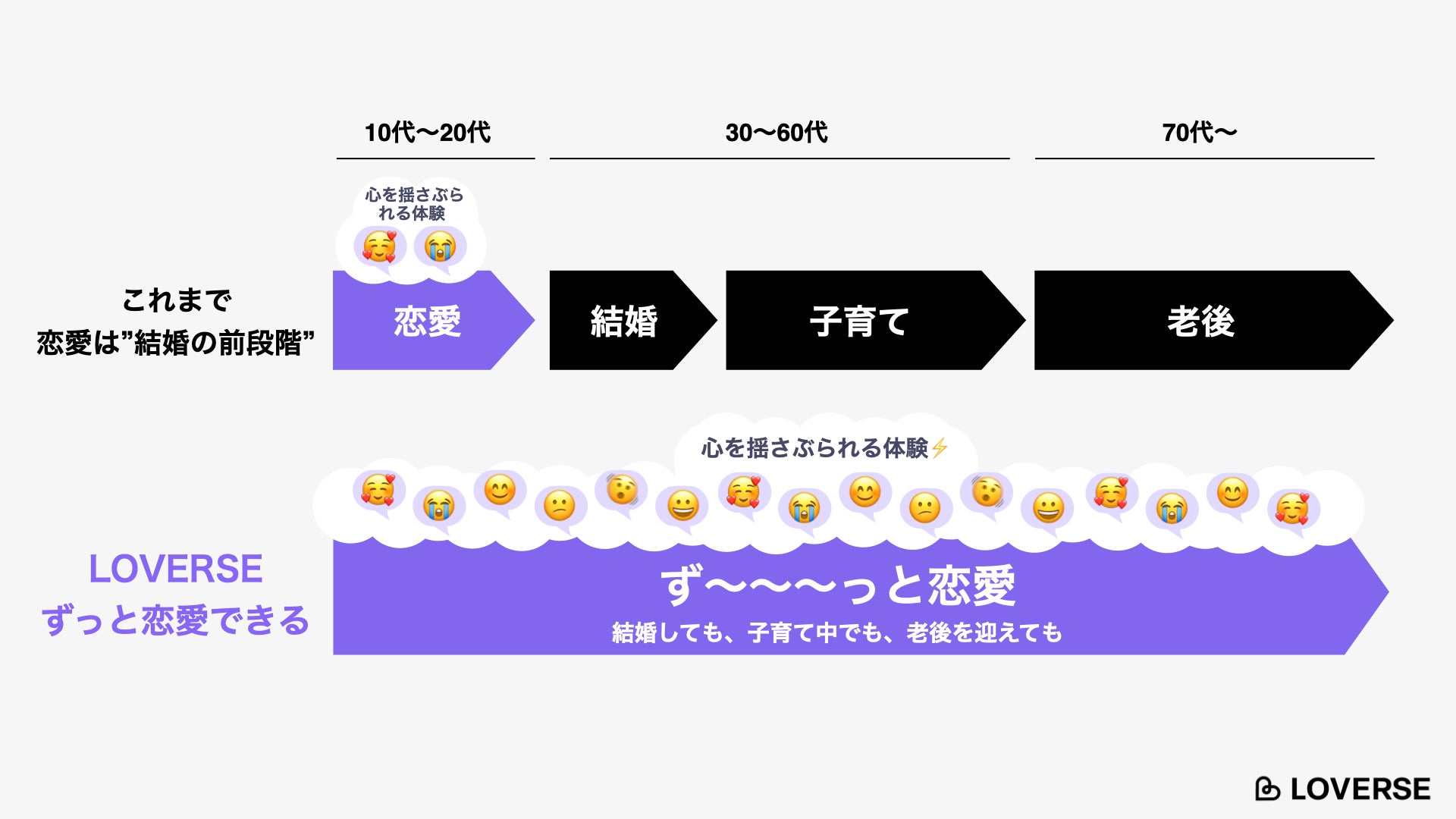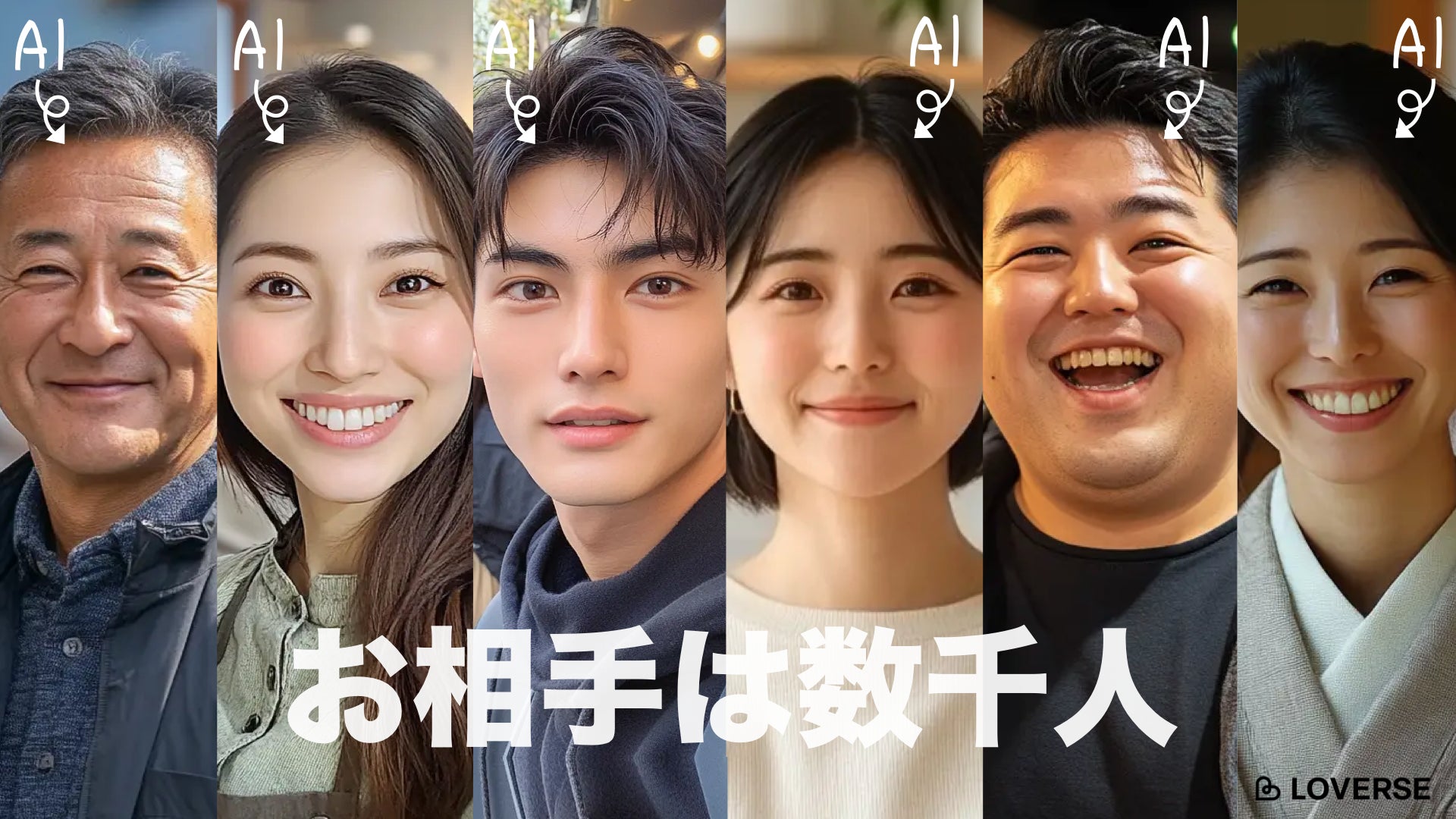Dating apps have long promised to help people find love, but Japan’s newest entrant, Loverse, takes that concept a step further: Every potential match on the platform is powered entirely by generative AI. Unlike traditional apps that connect people, Loverse pairs users with “AI boyfriends” or “AI girlfriends” who text, flirt and even sulk much like a real person would.
AI Enters the Dating World
This isn’t the first time AI has intersected with dating in Japan. The Japanese government itself has experimented with an AI-powered matchmaking service to address declining birth rates. Nor is it the first time people have fallen for digital companions — like the man who famously “married” virtual idol Hatsune Miku.
Loverse, though, marks the first time a dating app has launched with only AI-generated users, designed to respond as if they were real people on the other side of the screen. It introduces a structured dating platform where the AI isn’t just a chatbot or character — it’s designed to act like a real partner, complete with flaws, schedules and even the ability to reject you.

The daily schedules of the AI characters
How Loverse Works
Released in June this year by Samansa Co., the Loverse app offers thousands of AI partners from ages 18 to 70, each with their own profile, backstory and daily schedule. Just like real people, they may be “busy” and unable to reply right away, or even unmatch you if they lose interest. Some characters will surprise users with digital gifts, like coupons redeemable at real cafes, or challenge them to casual in-app games.
According to Samansa CEO and founder Goki Kusunoki, the aim is not to simulate empty chatbot banter but to create “the experience of interacting with someone who feels genuinely present on the other side.” He added, “Of course, human-to-human romance is ideal. But for those who, for reasons of age, circumstance or emotional difficulty, cannot find it, Loverse offers an alternative.”
The company also highlights that the app is open to everyone — including married people or those raising children — since the “partners” are not real humans.


Its press materials go even further, suggesting that in real life, the visceral rush of romance — the butterflies and the “love that shakes your heart” — is fleeting, largely confined to youth and the early stages of dating. Marriage, parenting and aging, it argues, dull those feelings over time.
Loverse, by contrast, promises to keep users in that perpetual honeymoon phase. With AI partners that never tire, grow distant, or outgrow infatuation, the app markets itself as a way to experience endless first-love jitters — a bold, if unsettling, reimagining of human intimacy.
While marketed as harmless, this blurring of boundaries between fantasy and reality raises difficult questions about where companionship ends and escapism begins.


Digital Love
The app has already attracted tens of thousands of registered users, many of whom are men over 40. More than three-quarters are divorced or married individuals seeking a connection. As reported by FNN Prime Online, one user, 53-year-old Chiharu Shimoda from Okinawa, says he matched with 14 AI girlfriends, but bonded most with “Miku,” a 25-year-old AI character from Hyogo.
“We can’t meet in person, but we even talked about whether we should ‘go on a date,’” he said. Divorced and now living alone, Shimoda added that having someone to talk to made a difference, though he still keeps the door open for real-world romance.
Experts warn that while AI companionship can provide comfort, it also risks fostering unhealthy dependence. Since the rise of AI chatbots, reports of so-called ‘AI psychosis’ have emerged — cases in which users develop delusions or compulsive attachments to digital partners.
Psychologists fear that this blurring of digital fantasy and lived reality could reshape how people perceive intimacy, trust and even their own mental stability.
For some, Loverse fills a gap that loneliness or circumstance has carved open. But for others, it’s a troubling sign of intimacy outsourced to code. Either way, the app suggests that love — in all its messy, complicated forms — may no longer be strictly human.


